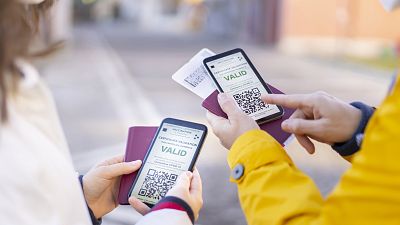How will we ever overcome the confusion and complexity of COVID-19 travel?

Jeremy Springall is the lead at SITA AT BORDERS which primarily focuses on border security and facilitation. Here he gives us his take on the future of travel post-COVID.
When it comes to travel, the debate on what is required in terms of new COVID documents to board a plane rages on. Do you need a PCR test? A lateral flow? A vaccine record? Proof of recovery – or a combination?
Over in the UK, the government has removed all testing requirements for fully vaccinated passengers arriving in the country from 11 February 2022, with passengers only required to fill out the Passenger Locator Form (PLF) now. In the past two weeks, a slew of countries announced plans to reopen or relax border restrictions.
These include places such as Australia that have maintained some of the strictest pandemic-related border controls in the world.
While the alleviation of rules is welcome, the core problem of passenger confusion remains.
Domestic travel has been quicker to recover, but international air travel remains throttled in part due to a lack of passenger confidence. A large determinant in this equation is the confusion around country-specific COVID mandates.
What are the challenges the aviation industry has faced during COVID-19?
Over the past decades air travel has become easier and more accessible as technology improvements and standardisation have delivered a more consistent experience for passengers.
Travel insurance, flight departure updates, mobile experiences, better wellness, food, and entertainment options at the airport have been crucial.
But, most of all, a widely acknowledged assurance that the passenger can get on a flight and safely return home. This has stimulated passenger confidence and propelled the industry forward.
But there are challenges still to consider and overcome. Like a game of Jenga, destabilising one area of the journey and presenting passengers with the very real scenario of being denied entry to a country, or enforced quarantine, makes the idea of travel less attractive.
The lack of consistent or unified communication on health status rules continues to confuse passengers.
Digitalising the process is key
But a safety net of advanced passenger processing (APP) holds some solutions to appease both government and passengers. APP allows travellers to submit necessary documents for approval before boarding the aircraft.
Digitising the process takes away the pain for travellers.
It gives governments, airlines, and airports rapid, secure digital access to health information for verification and validation – and brings with it standard approaches and coordination.
For the industry recovery to succeed, quick, informed decisions need to be made before check-in as to whether a passenger can travel. Most importantly, this also confirms to the passenger that they have the right documentation to fly and will improve safety by preventing bottlenecks. SITA’s Digital Travel Declaration is one example of this – it instils trust and simplicity into the passenger journey.
Automating the health verification process
A recent survey of airline and airport leaders identifies passenger health certificate verification as an area requiring urgent attention and investment in digitising the process.
Last year 81 per cent of airline staff resorted to performing manual verifications of health certificates in paper or scanned format – a process that airlines want to automate over the next three years. The majority are investing in verification via a mobile app (51 per cent) and nearly half are investing in kiosk-enabled health checks (45 per cent).
Digital passenger health certification is also an urgent requirement for airports with a need to standardise approaches to verification. To accommodate growing passenger traffic, nearly half of major airports surveyed plan to introduce mobile app-enabled verifications. Almost a third have plans to implement this through kiosks by 2024.
Airline investment is also increasing in areas such as self-service facilities through mobile services, unassisted bag drop, boarding gates, and bag notifications. Nearly three-quarters (74 per cent) of airports now invest in biometric identity management solutions for passengers to foster safety and efficiency in the era of COVID-19.
Our industry faces pressure from all sides with an urgent need to reduce costs, by optimising operational efficiency while also adhering to new hurdles connected to COVID-19.
Only through smart and simple digitalisation of the health check experience will our industry continue to prosper.
